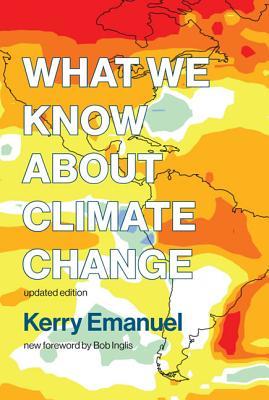What do you think?
Rate this book


84 pages, Paperback
First published August 31, 2007
Current estimates of this noise come largely from climate models run for a long time with constant forcing. These estimates suggest that the current global warming trend is clearly distinguishable from climate noise on time scales of around 30 years and longer. Just as a particular week in mid-spring may be colder than a particular week in late winter, there can be stretches as long as 30 years during which, owing to natural chaotic variability, the global mean temperature cools.
Options for dealing with climate change fall into three broad categories: curtailing the emissions of greenhouse gases (mitigation), learning to live with the consequences (adaptation), and engineering our way around the problems that greenhouse gases produce (geoengineering).
A key but complex issue is the relative costs and benefits of adaptation and mitigation, all of which must be estimated in an environment of considerable uncertainty. An optimal strategy will no doubt involve doing some of both.